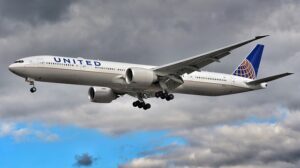United has said it will follow the rules outlined in union agreements on the dismissals, and that, that process could take months to complete.
Scott claims his airline’s experience holds a lesson for other companies. “Despite all the rhetoric and all the challenges that business leaders may think they’re going to have with the vaccine requirement, we did it. It was seven weeks from the time we announced it until we finished and we got to 99%.”
Back in February, Former Lord Chancellor, Robert Buckland said: “The legality of ‘no jab, no job’ would depend “very much on the terms of employment and the particular contract.
“Generally speaking, I’d be surprised if there were contracts of employment existing now that did make that approach lawful. I think frankly the issue would have to be tested.”
Health & safety lawyer, Dr Simon Joyston-bechal of Turnstone Law, told SHP, that “for any ‘no jab, no job’, policy to survive legal challenge in the UK, there’s going to need to be an extra element necessitating the vaccine in order to override the impingement on employee personal freedoms.
“Subject to suitable opt-outs for those with good reason not to be jabbed, I can see this working in the UK for appropriate health and care workers and conceivably in the airline industry, if restricted to cabin and cockpit crew whose jobs require them to be in close contact with others who may be vulnerable. But a blanket policy across all airline staff, including office workers, is likely to be seen in the UK as an infringement on personal liberty.”
From 11 November all care home staff in the UK will need to provide proof of vaccine in order to continue their employment. The government announced the timeline on 22 July, with all workers being told they must receive their first jab by 16 September in order to allow sufficient time between their first and second dose.
The responses to the announcement made a case for extending this policy beyond care homes to other settings where people vulnerable to COVID-19 receive care.
Based on this evidence, the government is currently launching a further public consultation on whether to make COVID-19 and flu vaccination a condition of deployment in health and care settings.
Sandra Joyce, owner of Linden House Nursing Home in Wellington, has said she expects to lose around 6% of her staff when the policy comes into force next month.
She continues: “I consider it’s our duty to do everything in our power to protect people in our care, but you just can’t make people do something that goes against the core of what they believe.
“I think it’s a misjudged, mistimed and misinformed knee-jerk attempt to try to protect care.”
Health Secretary Sajid Javid, on the other hand, says: care home workers who refuse the jab should simply, “get out and go and get another job.”
The full consultation on mandatory vaccinations for frontline health and care staff can be found here.

 Chicago-based United Airlines set out its
Chicago-based United Airlines set out its  This United Airlines case study fuels the ongoing debate as to whether proof of vaccine should become a mandatory requirement for all UK employers.
This United Airlines case study fuels the ongoing debate as to whether proof of vaccine should become a mandatory requirement for all UK employers.